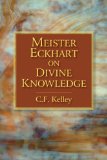A monogamy cheat sheet: A gem of wisdom that applies to all kinds of relationships
In her autobiography, my grandmother scandalously admitted to having a crush on a doctor at the hospital where she worked. The temptation wasn’t a result of marital dissatisfaction, though. Esther and Chester were as absurdly harmonious a pair as their names suggest. It’s just, she was unusually open and realistic about such things—even in her life story, which my grandfather was still around to read.
Some might attribute the success of their more than 50 years of marriage to the fact that she ultimately didn’t stray. I think it has more to do with her honesty. I’ve never believed that more than now, after Salon’s series of interviews with experts on the subject of monogamy. We covered so much ground—from our free-lovin’ prehistoric ancestors to the spread of monogamy alongside democracy to the transformation of marriage into a love-based institution—that I felt a desperate need for a takeaway. What have we learned after all this time picking the brains of some of the smartest thinkers and researchers on this subject? None of them were interested in proclaiming any one relationship style as what is best or right—with one exception: honesty.
Despite all their criticism of monogamy, they aren’t making an argument in favor of an alternative system but rather against taking monogamy for granted. In part because it doesn’t come naturally. Most animals, even the ones we think of as monogamous, are nonmonogamous. Humans, however, are a unique beast, if we do say so ourselves, so it can be much more useful to survey societal practices around the globe. When we do, we find that what’s natural is variation and diversity. The anthropological takeaway, as “The Myth of Monogamy” paraphrases Margaret Mead: “Monogamy is the hardest of all human marital arrangements.” Read Article
By Tracy Clark-Flory









